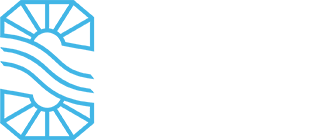Assessment
Student Learning & Educational Effectiveness at SDC
In keeping with its mission as an institution of higher education, San Diego Christian is committed to the idea that the assessment of student learning helps maintain a dynamic learning environment for all campus constituencies. The College has established six learning outcomes as part of its mission and each academic program has identified program learning outcomes to provide focus and meaning to the degrees offered.
Student Learning across the Curriculum
The evaluation of educational effectiveness at SDC includes both formative and summative assessment of student learning through the general education program as well as through each of the degree programs. Assessment efforts in general education are at the core of developing student skills in written and oral communication, quantitative reasoning, information literacy, and critical thinking. This year the campus has been focused on three core competencies: writing, oral communication, and information literacy. Formative assessments have been done for writing and oral communication.
Writing Skills
Beginning with the freshmen level writing sequence, student work samples are gathered in all courses that have been identified by faculty as writing intensive. Using an institutionally developed rubric and the integrated assessment tools available with Live Text faculty have been able to take a look across all programs to see how our students are doing. Below is a table of the writing intensive results since the fall of 2013. Results have also been disaggregated by program, gender, and ethnicity to see where improvements are needed in helping students gain mastery in their writing.
Writing Intensive Rubric Results
Oral Communication Skills
Oral communication samples are to be collected in courses flagged for formal presentations and in senior capstone courses. Some programs upload the actual videos of student presentations, others have uploaded outlines and/or PowerPoints from the presentations. The College has elected to use the VALUE rubric for Oral Communication developed by the Association of American Colleges & Universities. This will allow for future benchmarking of student learning in comparison with other institutions. The first round of collecting samples was the 2014-2015 academic year. Below is a table of rubric results for student oral presentations that were evaluated with the VALUE rubric.
Oral Communication Value Rubric Results
Information Literacy Skills
In the spring of 2015 all capstone research papers were also evaluated using an institutional rubric for Information Literacy. Below is a table of the results. This was the first attempt to evaluate information literacy separately from the evaluation of writing. The institutional writing rubric does have embedded categories dealing with quality of sources and accuracy in the citation of materials. Faculty this fall will be evaluating whether to shift to use of the VALUE rubric for Information Literacy.
Information Literacy Rubric Results
Student Learning & Institutional Distinctives
San Diego Christian College has within its institutional learning outcomes a commitment to the spiritual development as well as the cognitive, emotional and social development of all students. There are general education outcomes related to understanding a Biblical Christian Worldview and to the establishment of habits of mind and heart. These areas are embedded in the curriculum but are also reflected in many of the co-curricular programs of the College. The assessment strategies for student learning in these areas is multi-faceted.
In 2012 the Traditional program restructured one of the institutionally required courses (Contemporary Ethics) to serve as a GE Capstone course. Several final assignments for that course are being used to evaluate student learning outcomes associated with the faith-centered distinctives of the College. They include (1) a survey of beliefs to determine where students stand on matters of Christian doctrine and theology, (2) resolving an ethical dilemma and explaining their reasoning, and (3) writing out a Biblical Christian Worldview statement.
Another tool that is helping evaluate student learning experiences at SDC is the National Survey of Student Engagement (NSSE). In 2012 the NSSE was administered to freshmen and seniors. Results indicated that 92% of our first-year students frequently engage in spiritually enhancing activities such as worship, meditation, or prayer and 82% of our seniors participate in community service or volunteer work. You can click here to access a short summary of the student experience as reflected in student responses to the NSSE.
In 2013 the College also administered the CIRP Freshmen & Senior surveys. Summaries will be added to this site once they are available. One of the benefits of these instruments is the opportunity to benchmark our outcomes with those from other faith-based institutions.
The results on the NSSE and CIRP instruments also provide insight into institutional practices associated with student learning and critical to addressing campus commitments to establishing a strong learning community at SDC.
Student Learning in their Academic Programs
Each degree program at San Diego Christian culminates in senior capstone learning experiences that are structured to demonstrate student mastery of the established program learning outcomes. For some programs, this is a senior research project which includes a written report and a public presentation. In Business, there is a team experience where students participate in a national online simulation where each team runs a company. In Biology the capstone includes the use of the ETS Major Field Test in Biology as well as an individual research project and presentation. Psychology students do a research project and then participate in a formal poster session. In the Performing Arts students give a senior recital and in Christian Ministries, Intercultural Studies and Youth Ministries students participate in internships. Visit the individual academic program pages to find out more about program learning outcomes and what their graduates are doing.

